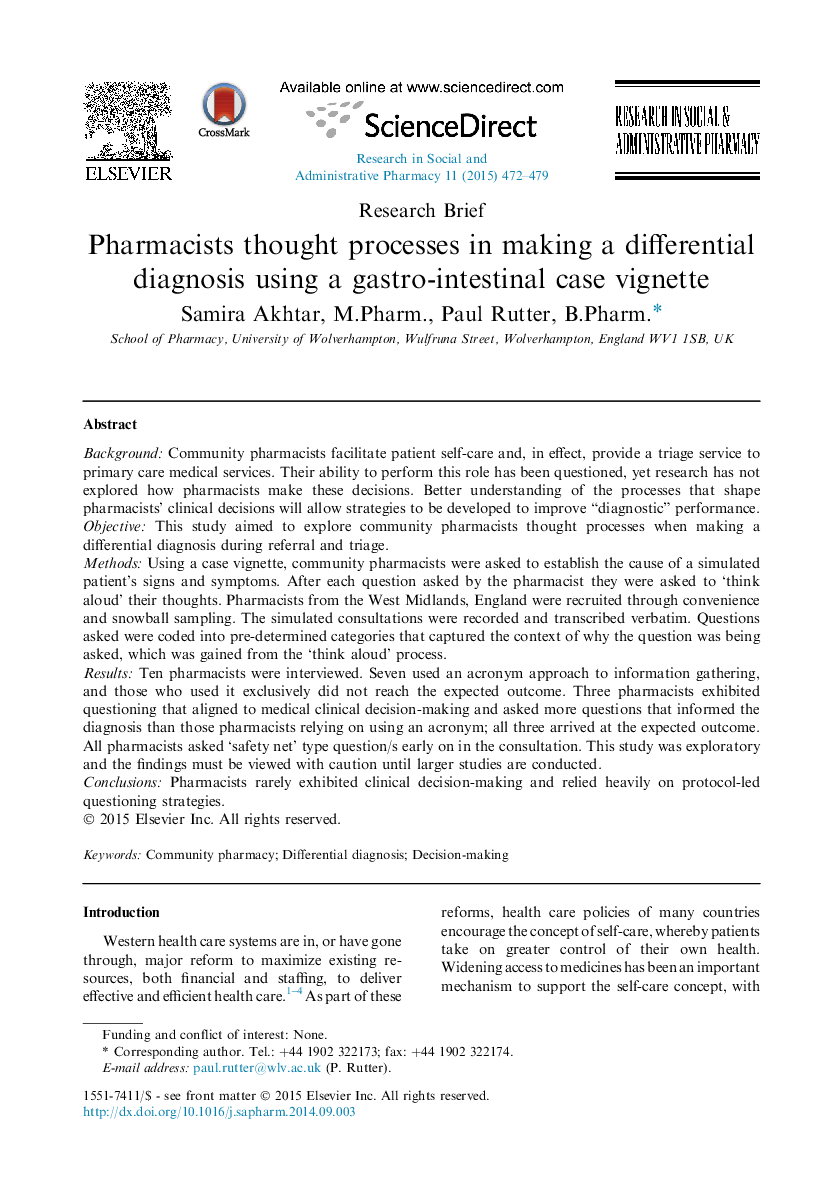| Article ID | Journal | Published Year | Pages | File Type |
|---|---|---|---|---|
| 2508335 | Research in Social and Administrative Pharmacy | 2015 | 8 Pages |
BackgroundCommunity pharmacists facilitate patient self-care and, in effect, provide a triage service to primary care medical services. Their ability to perform this role has been questioned, yet research has not explored how pharmacists make these decisions. Better understanding of the processes that shape pharmacists' clinical decisions will allow strategies to be developed to improve “diagnostic” performance.ObjectiveThis study aimed to explore community pharmacists thought processes when making a differential diagnosis during referral and triage.MethodsUsing a case vignette, community pharmacists were asked to establish the cause of a simulated patient's signs and symptoms. After each question asked by the pharmacist they were asked to ‘think aloud’ their thoughts. Pharmacists from the West Midlands, England were recruited through convenience and snowball sampling. The simulated consultations were recorded and transcribed verbatim. Questions asked were coded into pre-determined categories that captured the context of why the question was being asked, which was gained from the ‘think aloud’ process.ResultsTen pharmacists were interviewed. Seven used an acronym approach to information gathering, and those who used it exclusively did not reach the expected outcome. Three pharmacists exhibited questioning that aligned to medical clinical decision-making and asked more questions that informed the diagnosis than those pharmacists relying on using an acronym; all three arrived at the expected outcome. All pharmacists asked ‘safety net’ type question/s early on in the consultation. This study was exploratory and the findings must be viewed with caution until larger studies are conducted.ConclusionsPharmacists rarely exhibited clinical decision-making and relied heavily on protocol-led questioning strategies.
